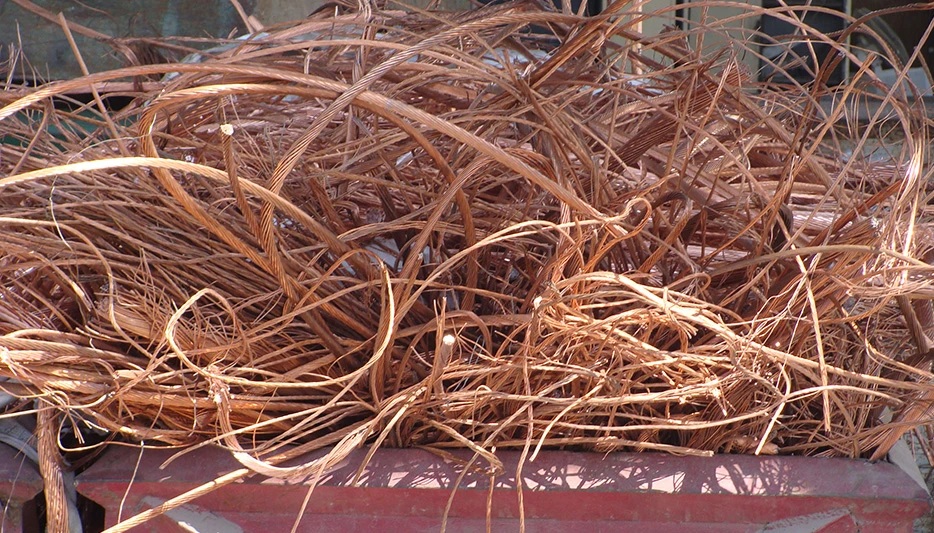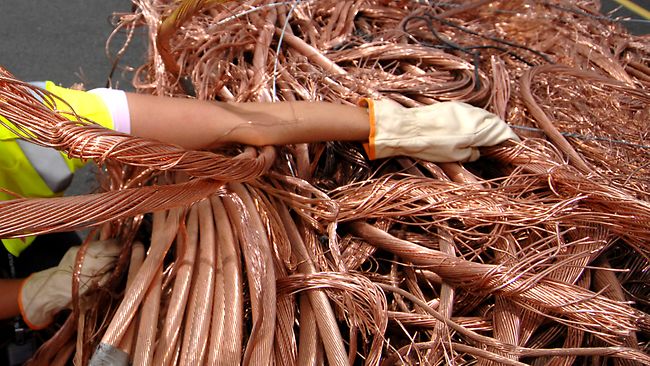Under the heading suppliers of Copper Wire scrap, we will be looking at the largest importers of copper scrap, African vendors and how US tariff has created shortages in Europe. Our website has always been about helping connect buyer and supplier. In a world filled with fraudsters, it is important that someone steps up to do the right thing. To make the internet safe for buyers, we report scam websites and social media profiles.
Shortages in Europe has led to increase in the price of copper crap around the world. This is why many have now turn to Africa to source copper scrap. The continent always has a large deposit of copper scrap because they do not recycle. They do not produce electrical materials hence have no use for the scrap copper. Once the copper is collected, they sell to oversea companies at very good rates.
As an importer buying copper wire scrap from Africa should be a top priority. In Africa you can get a ton of copper wire scrap for as low as $2,000 in some areas meanwhile it sells in Europe and China for as much as $10,000 per ton. A lot of people who made it big in the copper scrap business buy from Africa. Send inquiries if you are looking to buy bulk copper wire scrap from Africa.
African Suppliers of Copper Wire Scrap
Send inquiries today if you are looking to meet suppliers of copper wire scrap in Africa. Copper wire scrap business in Africa is a very big one. A lot of families depend on it and it is also a very good source of income from some criminal gangs. In Africa copper scrap is collected from garbage disposal units, door to door by people who buy old appliances and sometimes stolen from telecommunication poles.
Children gather copper wire scrap from construction sites, car garages, dumpsters and they take to the bigger buyers. These bigger buyers buy for as low as $1.23/lb., stockpile and resell to European buyers for $6/lb. As an importer, you need to be in direct contact with these African resellers however you will not meet them online or on Facebook. They do not need to advertise because there are always ready buyers for their stock.
Our job has been to rid the internet of scammers and middlemen by linking buyers directly with these suppliers. The online market is no longer safe and people lose money daily. Those who are looking to buy copper wire scrap always end up in the hands of scammers. We’ve put out information on our website which is aimed at helping people avoid scams when buying copper wire scrap from Africa.
Largest importers of copper wire scrap
Copper is a product used in the electrical field hence the biggest importers are those with a big electrical industry. According to IndexBox, China, USA, Germany, Italy, Taiwan, Thailand, Turkey, Malaysia and South Korea. These countries are the number one producers and exporters of electrical products.
1. China
China leads the way as the largest importer of copper scrap by any one country. Last year they had an annual import of $34.7 Billion making them the highest. The country’s booming economy and rapid industrialization have contributed to its massive demand for copper, which is used extensively in sectors such as construction, automotive, and electronics. China’s import value for copper has been steadily increasing over the years, making it a significant player in the global copper market.
2. USA
The USA is the second largest importer of copper scrap. They have a large stockpile of copper scrap and so even though they are the second largest, they only import about $6 Billion worth annually. They do not export copper scrap hence all that is collected from old appliances and cables is recycled. Copper is in very high demand due to the country’s strong manufacturing industry and infrastructure development.
3. Germany
If you are looking to sell your copper scrap, then Germany is a good place to look for buyers. The country’s robust manufacturing sector, known for its automotive and machinery production, heavily relies on copper. They buy in excess of $5.8 Billion annually putting them just behind USA. The country is also transitioning towards renewable energy hence the high demand for copper.
4. Italy
With over $5.6 Billion worth of copper scrap imported daily, Italy makes the list due to their mechanical engineering industry, renowned for its precision equipment and machinery. Also their growing construction sector has a continuous demand for copper hence the high interest in scrap.
5. Taiwan
Taiwan is the second largest importer of copper wire scrap in Asia. Their large electronics and semiconductor sector industries demand heavily on copper so, they source it from Africa. They buy as much as $3.8 Billion worth of copper every year. This quantity is expected to increase further as they expand their technological capabilities.
Thailand makes the list followed by Turkey, United Arab Emirates and South Korea. These countries are the powerhouse of copper. They produce from electrical appliances to cables which are exported all over the world.
Copper Shortage in Europe
There’s currently copper shortages in Europe and this has led to many buying copper wire scrap and cathode from Africa. Companies from Germany, Italy and Turkey have signed contracts with copper scrap exporters in Africa to ensure continuity of their activities. The top destinations for those looking to buy copper wire scrap and copper cathode are Tanzania, South Africa and Zambia. Tanzania and South Africa have a huge stockpile of copper scrap while Zambia has copper cathode.
We have helped many from Europe buy copper wire scrap during this period of shortages by linking them directly to suppliers. This way ensures they buy without getting scammed online. There are many advantages of buying directly from the supplier. It saves money as you do not have to pay a middleman and it means you will also have it at a relatively low price.
Technological development has seen the need for copper in Europe. Imports have amounted to more than $10 Billion and this amount is expected to double by 2034. If you are from Europe and looking to buy copper wire scrap do not hesitate to contact us.
Source: Global Trade Magazine









Leave a Reply
You must be logged in to post a comment.